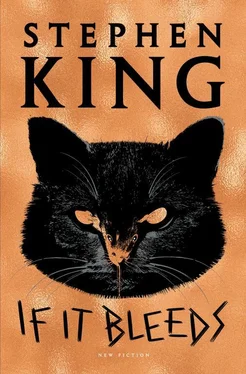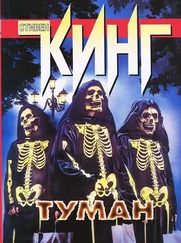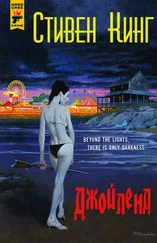Al leaned forward, hands clasped between his thighs. “Tell me something, Drew. Tell me why this is so important to you.”
3
That night, after making love, Lucy asked him if he really had to go.
Drew thought about it. Really did. She deserved that much. Oh, and so much more. She had stood by him, and when he’d gone through the bad time, he had leaned on her. He kept it simple. “Luce, this might be my last chance.”
There was a long silence from her side of the bed. He waited, knowing if she told him she didn’t want him to go, he would give in to her wishes. At last she said, “All right. I want this for you, but I’m a little bit scared. Can’t lie about that. What’s it going to be about? Or don’t you want to say?”
“I do. I’m dying to spill it, but it’s better to let the pressure build. I told Al the same thing when he asked.”
“Just as long as it’s not about academics screwing each other’s spouses and drinking too much and having midlife crises.”
“Not like The Village on the Hill , in other words.”
She poked him with her elbow. “You said it, Mister, not me.”
“It’s nothing like that.”
“Can you wait, honey? A week? Just to make sure it’s real?” And in a smaller voice: “For me?”
He didn’t want to; he wanted to go north tomorrow and start the day after. But… just to make sure it’s real . That was not such a bad idea, maybe.
“I can do that.”
“All right. Good. And if you do go up there, you’ll be all right? You swear?”
“I’ll be fine.”
He saw the momentary gleam of her teeth as she smiled. “That’s what men always say, isn’t it?”
“If it doesn’t work, I’ll come back. If it starts to be like… you know.”
To this she made no reply, either because she believed him or because she didn’t. It was okay either way. They weren’t going to have an argument about it, that was the important thing.
He thought she had gone to sleep, or was going, when she asked Al Stamper’s question. She had never asked before, not during his first two stabs at writing long form, not even during the ongoing clusterfuck that had been The Village on the Hill .
“Why is writing a novel so important to you? Is it the money? Because we’re doing all right with your salary and the accounting work I’m picking up. Or is it the cachet?”
“Neither of those things, since there’s no guarantee it would be published at all. And if it ended up in a desk drawer, like bad novels all over this round world of ours, I’d be okay with that.” As these words came out of his mouth, he realized they were actually true.
“Then what?”
To Al, he’d spoken about completion. And about the excitement of exploring uncharted territory. (He didn’t know if he actually believed that one, but knew it would appeal to Al, who was a closet romantic.) Such bullshit wouldn’t do for Lucy.
“I have the tools,” he said at last. “And I have the talent. So it might be good. It might even be commercial, if I understand the meaning of that word when it comes to fiction. Good matters to me, but that isn’t the main thing. Not the big thing.” He turned to her, took her hands, and put his forehead against hers. “ I need to finish . That’s all. That’s the whole deal. After that I can either do it again, and with a lot less sturm und drang , or let go. Either would be fine with me.”
“Closure, in other words.”
“No.” He had used the word with Al, but only because it was a word Al could understand and would accept. “It’s something different. Something almost physical. Do you remember when Brandon got that cherry tomato stuck in his throat?”
“I’ll never forget it.”
Bran had been four. They were having a meal out at Country Kitchen in Gates Falls. Brandon began making a strangled gagging sound and clutching at his throat. Drew grabbed him, turned him around, and gave him the Heimlich. The tomato had popped out whole, and with an audible thorp sound, like a cork from a bottle. No damage done, but Drew would never forget their son’s supplicatory eyes when he realized he couldn’t breathe, and guessed Lucy never would, either.
“This is like that,” he said. “Only stuck in my brain instead of my throat. I’m not choking, exactly, but I’m not getting enough air, either. I need to finish .”
“All right,” she said, and patted his cheek.
“Do you understand?”
“No,” she said. “But you do, and I guess that’s enough. Going to sleep now.” She turned on her side.
Drew lay awake for awhile, thinking of a little town out west, a part of the country where he had never been. Not that it mattered. His imagination would carry him, he was sure of it. Any necessary research could be done later. Assuming the idea didn’t turn into a mirage in the next week, that was.
Eventually he fell asleep and dreamed of a limping sheriff. A wastrel good-for-nothing son locked in a tiny crackerbox of a jail. Men on rooftops. A standoff that wouldn’t— couldn’t —last long.
He dreamed of Bitter River, Wyoming.
4
The idea didn’t turn into a mirage. It grew stronger, brighter, and a week later, on a warm October morning, Drew loaded three boxes of supplies—mostly canned food—into the back of the old Suburban they used as a second vehicle. This was followed by a duffel bag full of clothes and toiletries. The duffel was followed by his laptop and the scuffed case containing his pop’s old Olympia portable typewriter, which he wanted as a backup. He didn’t trust the power in the TR; the lines had a tendency to come down when the wind blew, and the unincorporated townships were the last places where power was restored after a blow.
He had kissed the kids goodbye before they left for school; Lucy’s sister would be there to welcome them when they got home. Now Lucy stood in the driveway in a sleeveless blouse and her faded jeans. She looked slim and desirable, but her brow was furrowed as if she had one of her premenstrual migraines coming on.
“You need to be careful,” she said, “and not just about your work. The north country empties out between Labor Day and hunting season, and cell phone coverage stops dead forty miles out of Presque Isle. If you break a leg walking in the woods… or get lost…”
“Honey, I don’t do woods. When I walk— if I walk—I’ll stick to the road.” He took a closer look at her and didn’t care for what he saw. It wasn’t just the furrowed brow; her eyes had picked up a suspicious sheen. “If you need me to stay, I’ll stay. Just say the word.”
“Would you really?”
“Try me.” Praying she wouldn’t.
She was looking down at her sneakers. Now she raised her head and gave it a shake. “No. I understand this is important to you. So do Stacey and Bran. I heard what he said when he kissed you goodbye.”
Brandon, their twelve-year-old, had said, “Bring back a big one, Dad.”
“I want you to call me every day, Mister. No later than five, even if you’re really rolling. Your cell won’t work, but the landline does. We get a bill for it every month, and I called this morning just to be sure. Not only did it ring, I got your pop’s old answering machine message. Gave me a little bit of a chill. Like a voice from the grave.”
“I bet.” Drew’s father had been dead for ten years. They had kept the cabin, using it a few times themselves, then renting it out to hunting parties until Old Bill, the caretaker, died. After that they stopped bothering. One group of hunters hadn’t paid in full and another group had pretty well trashed the place. It hardly seemed worth the hassle.
Читать дальше








